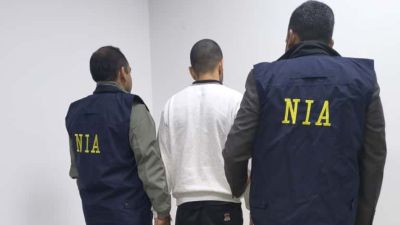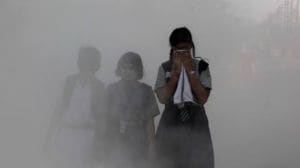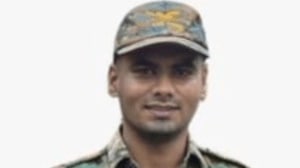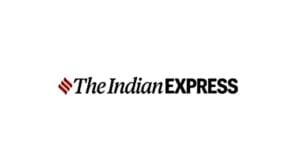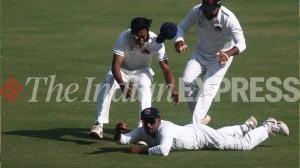Betting on quota in Maharashtra, BJP to ramp up OBC outreach to edge out MVA
At its internal meeting ahead of the Saturday conclave, the BJP leadership has directed its cadre across the state's 90,000 booths to push the party's OBC politics aggressively.
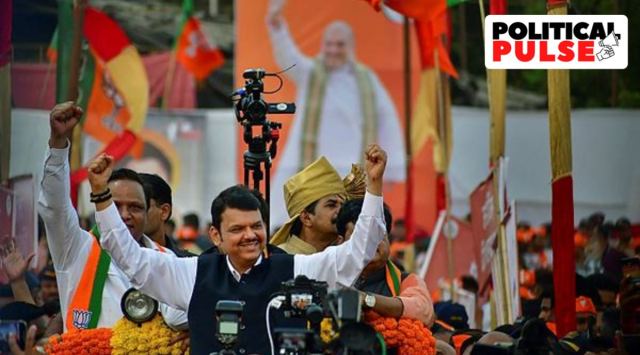 Leader of Opposition in Maharashtra Assembly Devendra Fadnavis during a rally at Somaiya ground, in Mumbai, Sunday, May 1, 2022. (PTI Photo)
Leader of Opposition in Maharashtra Assembly Devendra Fadnavis during a rally at Somaiya ground, in Mumbai, Sunday, May 1, 2022. (PTI Photo)The Bharatiya Janata Party (BJP)’s Maharashtra unit has convened an Other Backward Classes (OBCs) conclave in Mumbai on May 7 to redraw its political strategies to reach out to the OBCs vigorously in the state.
The BJP, the state’s principal Opposition, has prepared a two-pronged strategy: to tap into the OBC unease following the striking down of their reservation in local body polls by the Supreme Court, and to use the OBC quota issue to consolidate and expand its support base among the backward communities.
At its internal meeting ahead of the Saturday conclave, the BJP leadership has directed its cadre across the state’s 90,000 booths to push the party’s OBC politics aggressively. The saffron party has asked its rank and file to take its message that the “Shiv Sena-led Maha Vikas Aghadi (MVA) government has failed OBCs” to the grassroots across the state.
In the 2019 Maharashtra Assembly polls, the then incumbent BJP had stopped short of a simple majority, winning 105 out of the total 288 seats even as its then ally Sena (56 seats) jumped ship and joined hands with the Congress (44 seats) and the NCP (54 seats) to form the MVA coalition government headed by Sena chief Uddhav Thackeray.
The BJP has since come to terms that it has to fight the next Assembly polls, due in 2024, alone. The party’s renewed bid to make deeper inroads among OBCs stems from its ambition to come to power in the state on its own strength, which would be a formidable goal.
In its March 2021 order, the apex court had struck down the OBC reservation in local body elections as it was exceeding the 50 per cent quota cap limit, asking the state government to comply with its triple-test stipulation to retain the OBC quota.
This triple-test requirement requires the state (1) to set up a commission to conduct rigorous empirical inquiry into the nature and implications of the backwardness qua local bodies, within the state; (2) to specify the proportion of reservation required to be provisioned local body wise in light of recommendations of the commission, so as not to fall foul of overbreadth; and (3) in any case such reservation shall not exceed aggregate of 50 per cent of the total seats reserved in favour of SCs/STs/OBCs taken together.
Subsequently, as per the court’s direction the MVA government set up the Commission for State Backward Classes. A Bill was passed during the Assembly’s winter session for providing 27 per cent OBC quota in local bodies while ensuring that the 50 per cent reservation ceiling was not crossed. But the exercise of compiling empirical data regarding backwardness remains unaccomplished.
The government’s OBC face and senior NCP minister Chhagan Bhujbal has sought the BJP-ruled Centre’s intervention in the matter. “The Centre has OBC data. If it furnishes the statistics it will help to immediately resolve and restore the OBC quota in local bodies,” he said.
Meanwhile, in its order earlier this week, the apex court has directed the Maharashtra State Election Commission (SEC) to announce poll dates within two weeks for local bodies whose five-year tenure was already over.
These developments have set the stage for local body elections without the OBC reservation, which may turn into a significant political issue that the BJP is planning to exploit to its electoral advantage.
Training his guns on the MVA government, senior BJP leader and ex-chief minister Devendra Fadnavis alleged: “The MVA has failed OBC. In last two and half years they just did ‘time pass’. They never pursued OBC reservation issue seriously. The government cannot absolve its responsibilities.”
Leader of Opposition Fadnavis also claimed, “After the top court’s order I had personally volunteered to help the government with model on how to conduct empirical data for OBCs. I told them it can be completed within four months,” charging that “MVA clearly lacks political will in resolving OBC quota issue”.
Rejecting his allegations, Bhujbal sought to blame the Centre, saying “Had Centre extended a helping hand by sharing OBC data, we could have averted such a situation”.
The political tug of war between the BJP and the MVA constituents is set to continue over the OBC issue.
A senior BJP leader said, “With NCP president Sharad Pawar holding remote control of MVA government, Marathas’ loyalty and goodwill remain with them. The Marathas account for 30 per cent of the state’s population,” adding that the saffron party has thus decided to “go all out to woo the OBCs as per its tried and tested political formula”.
On April 6, 1980, when the BJP was formed, the RSS ideologue Vasantrao Bhagwat had observed that its expansion was not possible without getting support from OBCs. Bhagwat had given the BJP a new mantra – “MA-DHA-VA” – asking it to “win the support of Malis, Dhangars and Vanjaris, prominent communities classified under OBC”. The social engineering was necessary to give the BJP a new identity along with electoral dividends, which also helped the party to move beyond its Jana Sangha legacy of being dubbed as an organisation driven by only “Bhatji (Brahmins) and Shetji (traders)” communities.
More than four decades later, the BJP finds itself confronting new political challenges in the form of the MVA coalition in Maharashtra.
A BJP functionary said, “Whether it is polls for local bodies or Assembly, we feel large sections of Marathas, Muslims, Dalits will remain with MVA. The OBCs which constitute up to 50 per cent population remain our best bet.”
To reach out to the OBCs, the BJP has pledged 27 per cent tickets for OBC candidates in all local body polls, according to state BJP president Chandrakant Patil, who charged that the “denial of reservation for OBCs in local body polls is outcome of differences within the ruling combine”.


- 01
- 02
- 03
- 04
- 05


